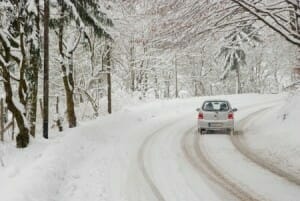Preparing Your Car for Winter Driving: Safety and Accident Avoidance
Depending on where you live, winter may or may not have reared its ugly head yet. Despite the weather, the show must go on – work, personal travel, and even fun vacations to ski or enjoy the snow. The reason for being on the road isn’t as important as safety on the road, and there are several things you can do to prepare your car for winter driving.
General Winter Maintenance
The upgrades you make for the winter will depend on how bad the winter usually gets where you live. In general, though, you’ll want to have your coolant system flushed and your anti-freeze levels checked. This will prevent overheating from the freezing temperatures. You’ll also want to make sure your heating system is working properly. You may think you can deal with a little bit of cold, but an improperly functioning system won’t let you defrost your windows, creating a major safety hazard. Update your windshield wipers and make sure your wiper fluid reservoir has fluid with added antifreeze.
Check Your Tires
Checking your tires is important all year but even more so in the winter. Make sure your tire pressure is correct and that the tire tread depth is not worn out. Worn out and improperly inflated tires won’t grip the surface of the road properly, leading to skidding, sliding, and potential accidents. Because of the change in temperatures causing expansion and contraction, you should check your tire pressure weekly.
Check Your Brakes
Newer vehicles have anti-lock brakes (ABS), which are safer than older types because they keep the brakes from completely locking. This will reduce the likelihood that you will skid on snow or ice, also helping you to avoid an accident. The upside here is that a lot of car insurance companies offer discounts to individuals who have ABS.
Don’t Drive If You Don’t Have To
It’s silly, but it’s the simplest tip we can give. If your trip can wait, just stay home. The best way to prevent an accident on a snowy or icy road is to not be on it. There is very little that can’t wait a few hours or another day. Save trips in the snow for emergency situations only.
If you do have to drive, make sure your vehicle is properly covered. Talk to your insurance agent about comprehensive and collision coverages, vehicle towing, rental car coverage, and even your deductibles. We want you to be prepared for whatever happens on the road – winter or not.

